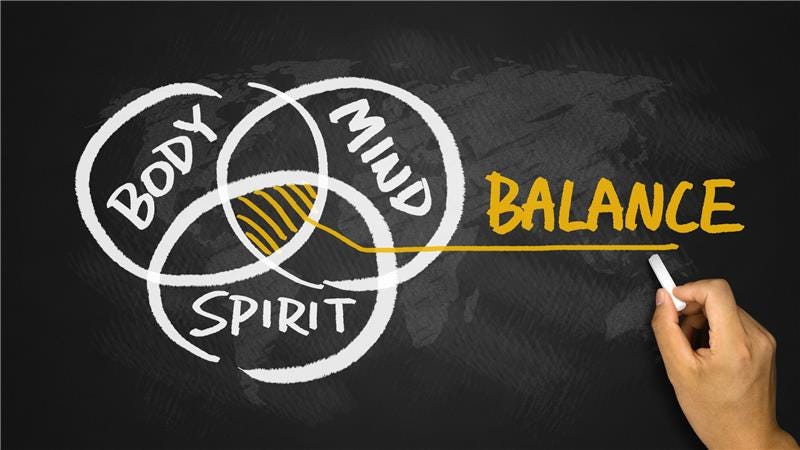
Exploring Collagen Supplements: Uses and Insights
What Is Collagen?
Collagen is the most abundant protein in the human body, making up approximately 30-40% of total protein content. It serves as a key structural component in skin, joints, bones, tendons, ligaments, and other connective tissues.
Often referred to as the "glue" that holds the body together, collagen provides:
- Structural support and elasticity to the skin.
- Strength and flexibility to bones, ligaments, and tendons.
- Protection for the gut lining and digestive tract.
- Hydration and resilience for hair and nails.
While collagen is naturally produced by the body, its production declines with age, contributing to common signs of aging such as wrinkles, joint discomfort, and reduced skin elasticity.
Types of Collagen and Their Functions
There are 28 different types of collagen, but the five most important ones for human health are:
| Collagen Type | Primary Function | Common Sources |
|---|---|---|
| Type I | Supports skin, hair, nails, bones, and tendons. | Marine collagen, bovine collagen. |
| Type II | Promotes joint and cartilage health. | Chicken collagen, bone broth. |
| Type III | Helps with skin elasticity and blood vessel health. | Bovine collagen, pork skin. |
| Type IV | Supports the gut lining and filtration system. | Eggshell membrane, marine collagen. |
| Type V | Found in corneal tissue, hair, and placenta. | Chicken collagen, multi-collagen blends. |
Most collagen supplements contain Type I, II, or III, while multi-collagen formulas blend different types to provide comprehensive benefits.
Why Collagen Declines With Age
As we age, collagen production naturally decreases. Starting around the mid-20s, the body produces less collagen each year. By the time a person reaches their 50s, collagen synthesis has significantly slowed, leading to visible signs of aging.
Factors That Contribute to Collagen Loss:
- Aging: Natural decline in fibroblast activity, reducing collagen synthesis.
- Sun Exposure (UV Radiation): UV rays break down collagen fibers in the skin, leading to wrinkles and sagging.
- Poor Diet: Low protein intake and excessive processed foods reduce amino acid availability for collagen production.
- Smoking and Alcohol: Increase oxidative stress and degrade collagen at a faster rate.
- Chronic Stress: High cortisol levels negatively impact collagen formation.
Because of this natural decline, many individuals turn to collagen supplements to support skin elasticity, joint health, and overall well-being.
Key Benefits of Collagen Supplementation
Collagen supplements provide essential amino acids that support structural integrity in the skin, joints, and connective tissues. Below are some of the science-backed benefits of collagen supplementation:
Supports Skin Health and Hydration
Collagen plays a crucial role in maintaining skin elasticity, hydration, and overall appearance. As collagen declines, the skin becomes thinner, leading to wrinkles and dryness.
Studies show that supplementing with hydrolyzed collagen peptides can help:
- Increase skin hydration and elasticity.
- Reduce the appearance of fine lines and wrinkles.
- Support overall skin texture and radiance.
Research published in the Journal of Clinical Nutrition indicates that regular collagen supplementation improves skin hydration and firmness.
Promotes Joint and Bone Strength
Collagen is a key component of cartilage, the tissue that cushions joints and helps prevent discomfort. Aging leads to collagen loss in the joints, which can contribute to stiffness and reduced mobility.
Supplementing with collagen may help:
- Support joint flexibility and comfort.
- Help maintain cartilage integrity.
- Reduce occasional joint stiffness and discomfort.
Studies suggest that collagen peptides can help maintain joint health in active individuals and aging adults (International Journal of Sports Nutrition).
Aids in Hair and Nail Growth
Collagen contains amino acids that support the production of keratin, the protein responsible for strong hair and nails.
Consistent collagen intake may help:
- Strengthen brittle nails and reduce breakage.
- Support healthy hair growth and thickness.
- Reduce hair shedding due to environmental stressors.
Marine collagen, in particular, has been studied for its positive effects on hair health.
Supports Gut and Digestive Health
Collagen plays a role in maintaining gut lining integrity, which is essential for digestive health.
Potential benefits of collagen for gut health include:
- Supporting a healthy gut barrier.
- Providing amino acids needed for digestive tissue repair.
- Helping maintain overall gut function.
Collagen peptides are often included in gut health protocols due to their role in supporting digestive wellness.
Plays a Role in Muscle Recovery
Collagen contains glycine and proline, amino acids that support muscle repair and recovery.
Benefits for muscle health include:
- Assisting in post-exercise recovery.
- Supporting muscle structure and function.
- Providing essential amino acids needed for muscle repair.
Collagen, when combined with resistance training, may contribute to muscle maintenance in aging adults.
Best Food Sources of Collagen
While collagen supplements provide a concentrated source of collagen peptides, you can also support collagen production through a well-balanced diet.
Natural Collagen-Rich Foods:
- Bone Broth: One of the best natural sources of collagen, rich in amino acids.
- Chicken Skin and Cartilage: Naturally high in Type II collagen, beneficial for joint health.
- Egg Whites: Contain proline, an important amino acid for collagen production.
- Fish Skin and Scales: Marine collagen is derived from fish sources and is easily absorbed.
- Beef and Pork Skin: Excellent sources of Type I and III collagen.
Collagen-Boosting Nutrients:
In addition to collagen-rich foods, certain nutrients can help stimulate the body's natural collagen production:
- Vitamin C: Found in citrus fruits, bell peppers, and strawberries, essential for collagen synthesis.
- Zinc: Found in shellfish, pumpkin seeds, and nuts, supports collagen formation.
- Copper: Found in organ meats and nuts, plays a role in collagen cross-linking.
- Amino Acids: Glycine and proline found in gelatin and protein-rich foods support collagen structure.
Choosing the Right Collagen Supplement
With numerous collagen supplements available, it's important to select the best option based on quality, formulation, and personal health goals.
Key Considerations When Selecting a Collagen Supplement:
- Hydrolyzed Collagen (Collagen Peptides): This form is broken down into smaller peptides, making it highly absorbable.
- Type of Collagen: Choose Type I and III for skin and hair, or Type II for joint health.
- Source: Marine collagen is known for high bioavailability, while bovine collagen is rich in Types I and III.
- Third-Party Testing: Ensure the supplement is free from contaminants and heavy metals.
- No Artificial Additives: Look for clean formulas without fillers, preservatives, or artificial flavors.
Collagen Powders vs. Capsules:
Collagen powders are versatile and can be mixed into smoothies, coffee, or water, while capsules offer convenience for those who prefer a pill form.
How to Take Collagen for Best Results
To maximize the benefits of collagen supplementation, consider the following tips:
Best Practices for Taking Collagen:
- Consistency Is Key: Collagen works gradually, and results are typically seen after 6-12 weeks of daily intake.
- Pair with Vitamin C: Vitamin C enhances collagen synthesis, so take collagen with citrus fruits or a vitamin C supplement.
- Time of Day: Collagen can be taken in the morning or before bed, depending on personal preference.
- Mix with Beverages: Add collagen powder to coffee, smoothies, or water for easy consumption.
- Avoid Excess Sugar: High sugar intake can break down collagen and hinder its effectiveness.
Frequently Asked Questions (FAQs)
How long does it take for collagen supplements to work?
Most people start noticing benefits such as improved skin hydration and reduced wrinkles within 6-12 weeks of consistent use. Joint and muscle benefits may take a few months to become noticeable, depending on individual collagen levels and overall health.
Can collagen supplements help with joint pain?
Yes, collagen supplements have been studied for their role in supporting joint comfort and flexibility. Type II collagen, in particular, is beneficial for cartilage and joint cushioning. Regular supplementation may help maintain joint health and reduce occasional stiffness.
What is the best time to take collagen?
Collagen can be taken at any time of the day. Some people prefer to take it in the morning with their coffee or smoothie, while others take it before bed to support overnight recovery. The key is to take it consistently for the best results.
Can I take collagen with other supplements?
Yes, collagen pairs well with other supplements such as vitamin C (for enhanced collagen synthesis), hyaluronic acid (for skin hydration), and magnesium (for muscle support). However, it is best to consult a healthcare provider before combining multiple supplements.
Is marine collagen better than bovine collagen?
Marine collagen is known for its high bioavailability and is often preferred for skin benefits, while bovine collagen provides both Type I and III collagen, which support skin, hair, nails, and joints. The best choice depends on individual health goals.
Are there any side effects of collagen supplements?
Collagen supplements are generally well-tolerated. Some individuals may experience mild bloating or digestive discomfort when first starting collagen. Choosing hydrolyzed collagen peptides can help improve digestibility and absorption.
Final Thoughts on Collagen Supplementation
Collagen is a vital protein that supports skin elasticity, joint health, muscle recovery, and overall wellness. Since natural collagen production declines with age, supplementation can be an effective way to maintain collagen levels and support long-term health.
Key Takeaways:
- Collagen is essential for skin, joints, hair, nails, and gut health.
- Types I, II, and III collagen offer different benefits, making multi-collagen blends a great choice.
- Marine collagen is highly bioavailable, while bovine collagen supports multiple structural functions.
- Combining collagen with vitamin C enhances absorption and effectiveness.
- Consistency is key—results are typically seen after 6-12 weeks of regular supplementation.
By incorporating high-quality collagen supplements and a collagen-boosting diet, individuals can support their body's natural structural integrity and aging process.









